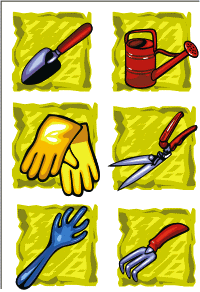 Nothing is enough for the man to whom enough is too little- Epicurus.
Nothing is enough for the man to whom enough is too little- Epicurus.
In 1930, Keynes, the most influential 20th century economist, predicted in his notes, ‘Economic possibilities for our grandchildren,’ that, within a century, per capita income would steadily rise, people’s basic needs would be met, and no one would have to work more than fifteen hours a week.
Per capita income seems to have increased as he envisioned but it seems people are working for fifteen hours a day now! Was he wrong? I don’t think he was wrong. If you read carefully, he says, people’s ‘basic needs’ would be met. It still makes sense. So then, is it our ‘wants’ that seemingly have gone unsatisfied or rather berserk?
Authors, Robert & Edward Skidelsky in their book ‘How much is enough?’ argue that economics is moral science. They have beautifully traced the concept of the good life from Aristotle to the present and tried to show how our lives over the last half century have strayed from that ideal. It is an impressive presentation and certainly helps bring about a perspective to those battling with the aforesaid question.
Recently, a friend was visiting me. She and her husband have shifted their base to a remote village where they are inspired to lead a more natural life, growing their own food and vegetables and tending cows. Though they had no background whatsoever, they were determined to quit their successful IT jobs (against all odds and oppositions, mind you!) and with a deep belief that, ‘God is the provider,’ they took the plunge to lead a more sattvic, god-conscious and surrendered life. The day she visited me, another friend and her family left the country for good, to go to a western country for better economic prospects. I was contemplating on the motives behind these two moves-the conditions that led one family choose to go to the village for a ‘better today’ while the other family left for another country with the hope that they will have a ‘better tomorrow.’
There are many others who have defined their comfort zones in the swelling cities and are day in and day out working hard like asses to make more and more money. ‘Working- to earn good money’ seems to be in the centre of every house holder (grihasta) these days. We see this as the only means to provide for food, shelter, clothing for the family and education of our children. Ofcourse, along the course, we will also invest in properties, have a couple of Fixed Deposits in banks, buy an apartment, to secure our so-called ‘future,’ and graduate to our next cars as well.
‘Insatiability,’ Skidelskys say, is the psychological disposition that prevent us as individuals and as societies, from saying, ‘enough is enough,’ directed by a desire for more and more money. Capitalism, they say, has made possible improvements in material conditions whereas it has also exalted some of the most reviled human characteristics, such as greed, envy and avarice.
We’ve forgotten the art of living a simple life in the complicated mire of city life and are getting more and more conditioned. Though we’re trapped and choked, we’re afraid to say so! But deep inside we know what an artificial life we are leading! So, my dear friends, let’s take stock of our lives and before it is too late, let’s see if we really need to stay in this rat race or step aside and lead our lives according to natural principles where ones life is truly simple, ones needs are truly lesser, one has more time on hand to focus on his higher goals and one is more satisfied and happier.
Its not an easy task to overcome our own conditioning as our truant mind leads us astray but when we take shelter in the wisdom of great thinkers, philosophers and spiritualists, we get the courage to step aside and make the right decisions for ourselves and for generations to come.
Radhanath Swami recommends plain living and high thinking for everyone. He defines simplicity as finding balance in our life by which our mind, our body are in the most optimum condition. Desires are endless, he says, the more we have, the more we need and we are never satisfied. We need to do everything in right proportion as per our minimum requirements.
Srila Prabhupada, the founder of International Society for Krishna Consciousness, said, “The Krishna consciousness movement is therefore establishing various farms to show how to be happy and content with minimum necessities of life and to save time for self-realization.’











